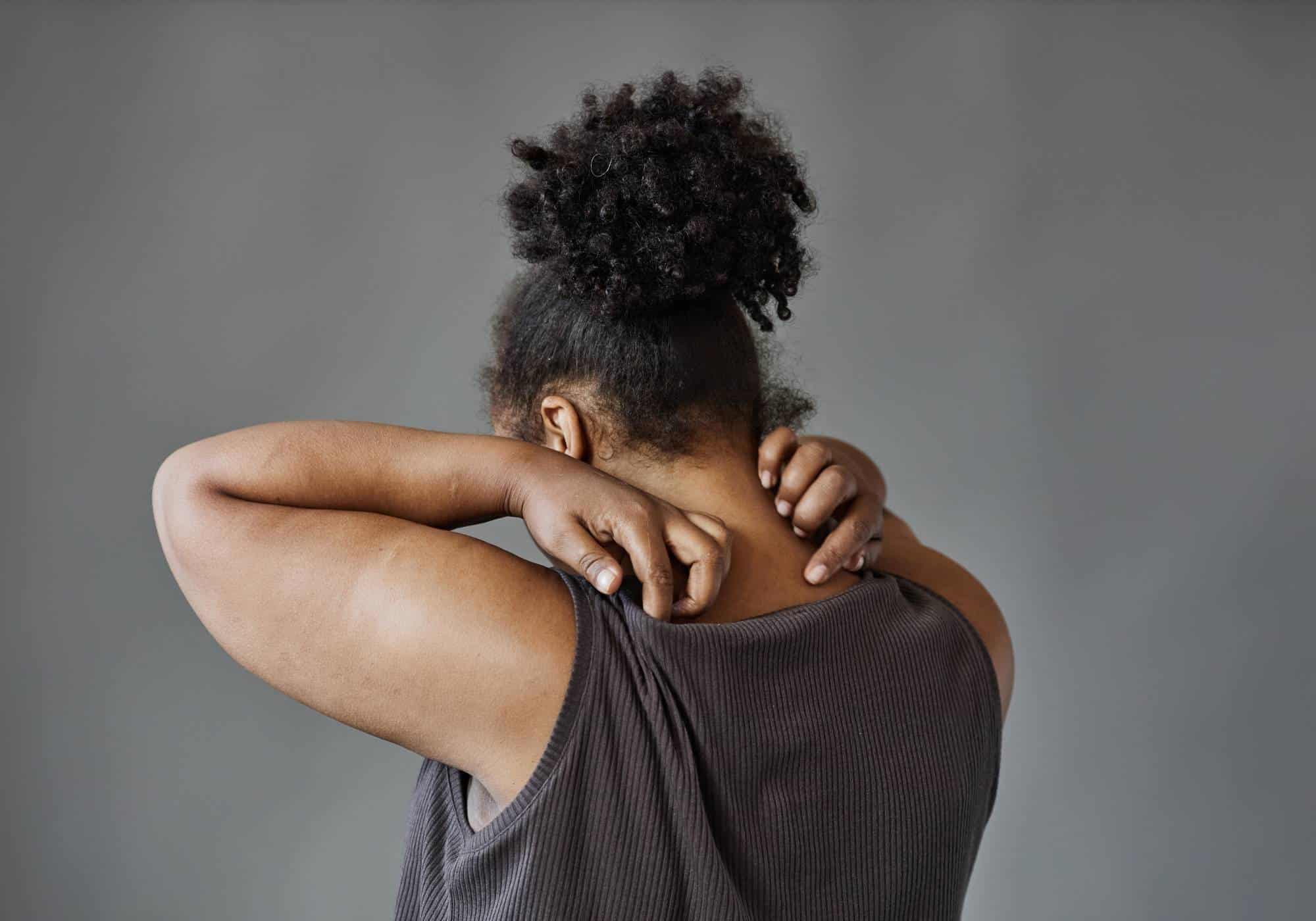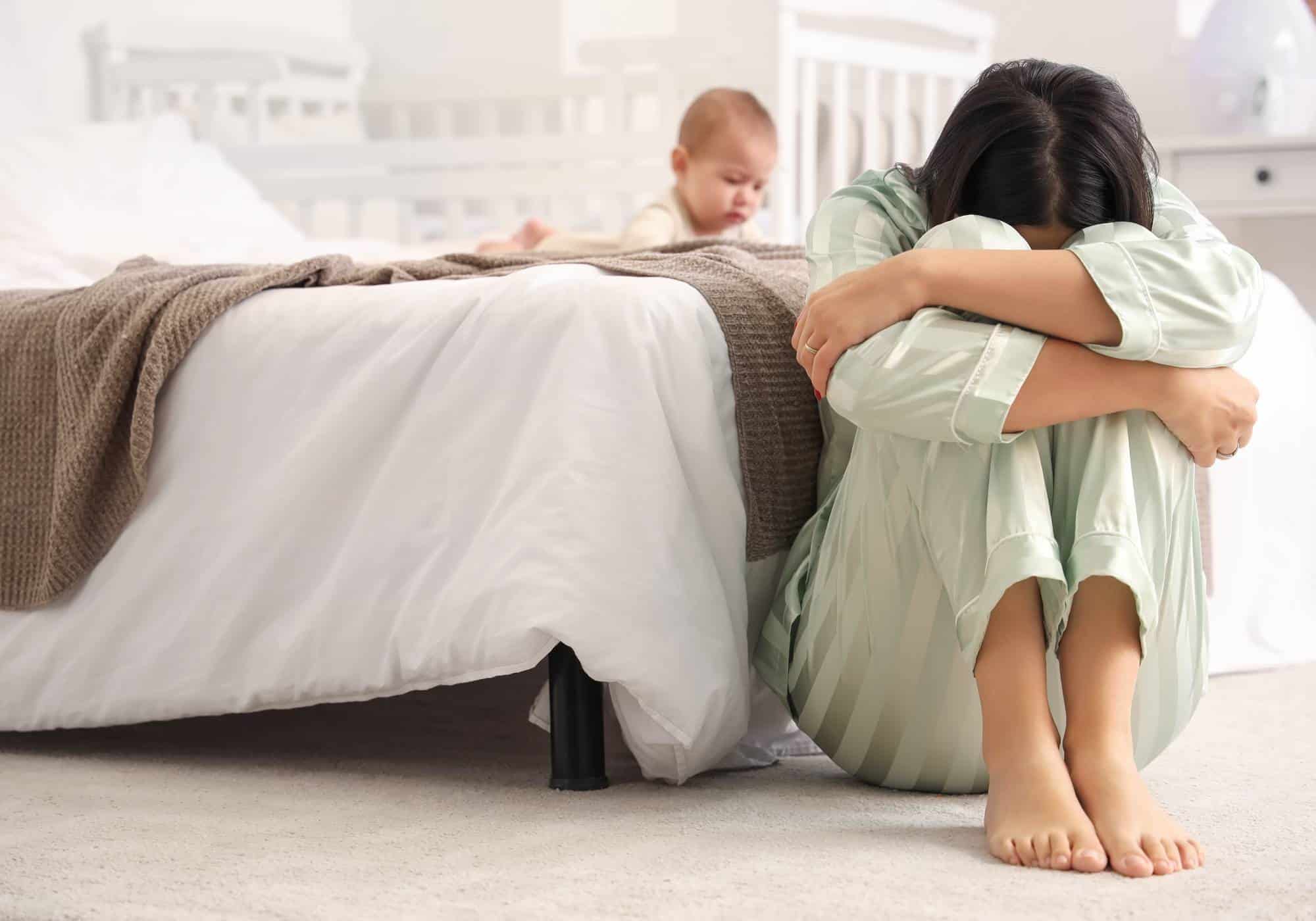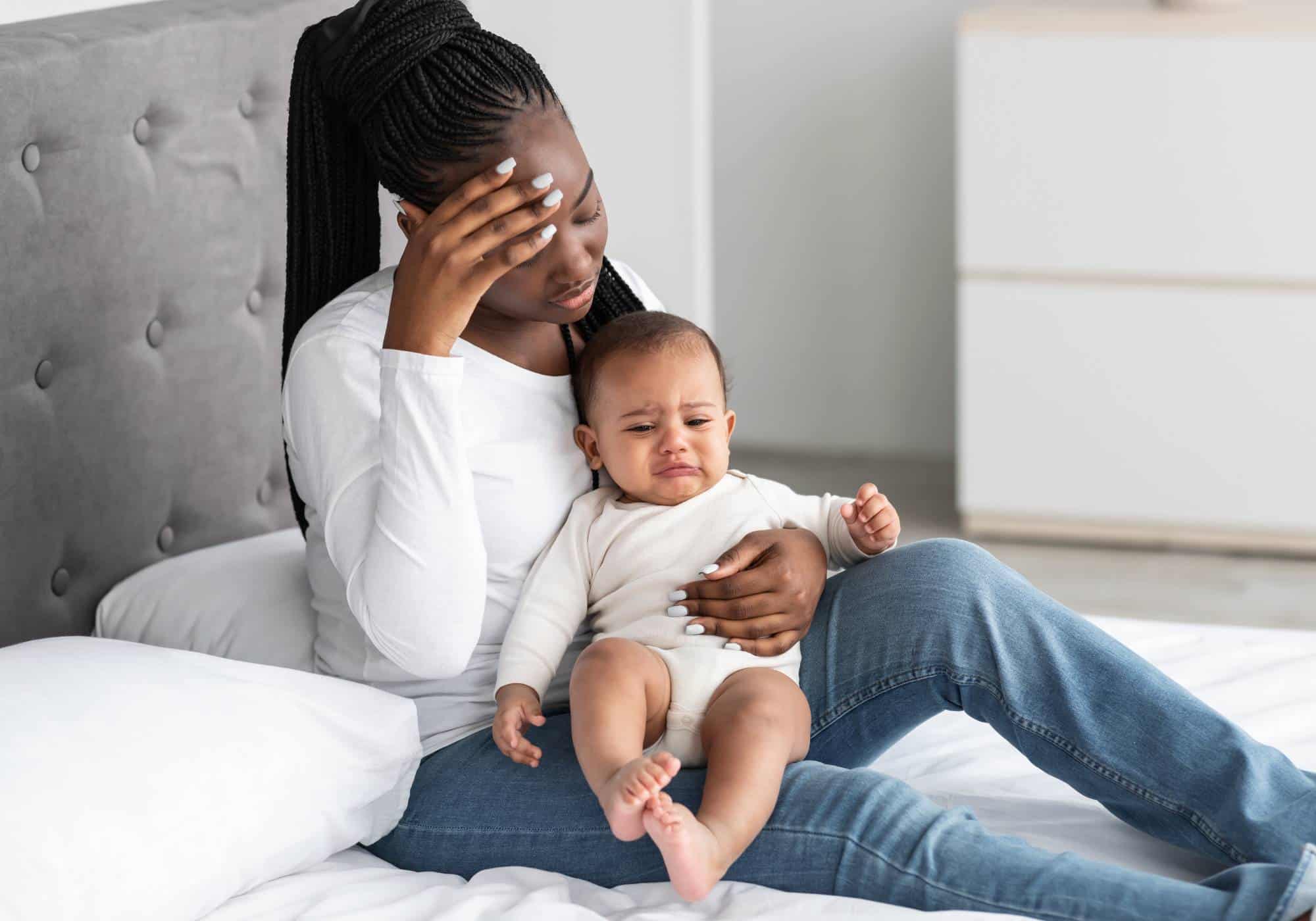What Is Postpartum Depression?
Postpartum depression, sometimes called “baby blues,” commonly appear after childbirth. During this phase, many new mothers feel anxious, sad, or overwhelmed. But in most cases, baby blues last no more than two weeks. If these feelings intensify or linger beyond that timeframe, it may point to postpartum depression, which is more serious and long-lasting. Recognizing the difference is important because postpartum depression isn’t a sign of being an unfit parent; it’s a potential complication of giving birth. Women can also experience postpartum anxiety alongside postpartum depression. Without the right care, these postpartum symptoms can persist up to a year after having a baby.
Who is affected by postpartum depression?
Postpartum depression is fairly common. It’s estimated that up to 75% of new mothers go through the baby blues after delivery, and around 15% of those individuals go on to develop postpartum depression. In very severe cases, about 1 in 1,000 women may experience postpartum psychosis, which is rare but needs urgent attention.
Is PPD the Same as the Baby Blues?
No. PPD, or postpartum depression, is not the same as the baby blues. Baby blues can cause brief spells of sadness, mood swings, and tearfulness in the first couple of weeks after childbirth. In many instances, women with baby blues might find themselves crying for no reason or feeling irritable. Yet these symptoms usually ease on their own within about 10–14 days. If you find that down feelings persist beyond two weeks, postpartum depression may be the more likely cause. It’s essential to let your healthcare provider know so they can evaluate you properly. Postpartum depression (PPD) is more severe, has greater potential to disrupt your life, and can last for weeks or even months if left untreated.
Symptoms of Postpartum Depression
Baby Blues Symptoms
Most women feel “off” for a while after giving birth.
The following baby blues symptoms typically emerge shortly after delivery and tend to resolve within a week or two:
- Mood swings
- Anxiety
- Sadness
- Irritability
- Feeling overwhelmed
- Frequent crying
- Difficulty concentrating
- Changes in appetite
- Trouble sleeping
While these signs often fade as hormones level out and you adapt to life with a newborn, keep an eye on how you’re feeling. If you still feel consistently sad or anxious beyond a couple of weeks, you could be dealing with something more intense.
Postpartum Depression Symptoms
Postpartum depression might initially appear similar to baby blues, but it’s more intense and doesn’t go away so quickly. It can severely affect your ability to care for your child or manage everyday life. Postpartum depression symptoms typically develop within a few weeks after childbirth, but they can also manifest sooner (during pregnancy) or much later (up to a year after birth).
Watch for these signs:
- Persistent depressed mood or major mood swings
- Excessive crying without clear cause
- Struggling to bond with your baby
- Withdrawing from loved ones
- Eating significantly less or more than usual
- Insomnia or oversleeping
- Extreme fatigue or loss of energy
- Less enjoyment in activities you once loved
- Strong irritability and outbursts of anger
- Worries that you aren’t a good mother
- Hopelessness about the future
- Feeling worthless, guilty, ashamed, or inadequate
- Difficulty focusing, thinking clearly, or making decisions
- Restlessness, shaking, or feeling unable to sit still
- Severe anxiety or panic attacks
- Thoughts of harming yourself or your baby
- Recurring thoughts about death or suicide
If untreated, postpartum depression can drag on for months or even longer. Because it disrupts both your mood and your capacity to handle daily responsibilities, it’s crucial to address these symptoms and seek care.
Postpartum Psychosis
Postpartum psychosis is a very uncommon and dangerous condition, usually appearing within the first week following delivery.
Its primary difference from postpartum depression lies in the severity of symptoms, such as:
- Extreme confusion or feeling “lost”
- Obsessive thoughts about your baby’s well-being or safety
- Hallucinations or delusions
- Serious sleep disturbances
- Unusually high energy levels or pronounced agitation
- Paranoia and distrust of others
- Attempting to harm yourself or your baby
Because postpartum psychosis can lead to life-threatening behaviors or thoughts, it requires immediate medical intervention. If you suspect postpartum psychosis in yourself or someone else, call a healthcare professional right away.
How Do I Know If I Have Baby Blues or Postpartum Depression?
Baby blues and postpartum depression share certain hallmarks: sadness, irritability, difficulty sleeping, and occasional tearfulness. However, the timeline and severity make a difference. Baby blues resolve within about two weeks, whereas postpartum depression carries on for a longer period—anywhere from several weeks to months or more. If your emotions are persistent, intense, or making it tough to care for your baby, you could be dealing with postpartum depression. Tell your doctor or therapist how you’re feeling; they can help narrow down the diagnosis.
How Long Does Postpartum Depression Last?
Many individuals wonder: How long does postpartum depression last? In general, postpartum depression can continue until your child’s first birthday if left unaddressed. Yet it’s important not to assume you’ll just “snap out of it” once that year mark hits. Every situation is unique, and some people might get better faster, while others may need ongoing help. Collaborate with your health provider—be upfront about your progress, how you’re feeling, and whether you still have recurring symptoms. This honesty helps them fine-tune your treatment plan and provide lasting support.
Postpartum Depression in the Other Parent
Although postpartum depression is typically associated with birth mothers, recent studies highlight that fathers, too, can develop symptoms of postpartum depression. This sometimes goes by the term paternal postpartum depression.
Like moms, dads may feel:
- Sad
- Tired
- Overwhelmed
- Anxious
- Changes in eating or sleeping
Some circumstances can escalate the chance a father might experience postpartum depression. These include young age, pre-existing depression, financial struggles, or tension in the relationship. Fathers dealing with postpartum depression may face similar emotional difficulties that strain the family, influence child development, and potentially create an unhealthy home environment.
If you’re the partner of a new mom and have mood issues or anxiety, you should be open about it with a healthcare provider. They can guide you toward the same kind of treatments that help mothers facing postpartum depression—like counseling, social support, or medication—so you can care for both yourself and your growing family.
Causes of Postpartum Depression
Pinpointing what causes postpartum depression usually involves multiple factors—physical, emotional, and biological. Hormone fluctuations during and after pregnancy often play a large role, as your estrogen and progesterone levels spike while pregnant and drop rapidly soon after birth. These shifting hormonal levels can affect how your brain regulates mood. Beyond hormones, new mothers can experience stress, anxiety over child care, and self-image issues, all of which heighten the risk of developing postpartum depression.
Some of the most common risk elements include:
- Genetics: A family background of postpartum depression or other significant mood disorders raises one’s likelihood.
- Physical Changes: A dramatic decrease in hormones like estrogen, progesterone, and even thyroid hormones can bring on exhaustion and sadness.
- Emotional Factors: Managing a newborn can be emotionally draining, especially if you’re already short on sleep and feeling uncertain about your parenting abilities.
How Is Postpartum Depression Diagnosed?
Professionals typically diagnose postpartum depression through an in-depth discussion of symptoms, medical background, and overall mental health. They’ll also check for any underlying physical issues, such as a thyroid imbalance, that can lead to depressive symptoms. Once medical problems are ruled out, a mental health specialist—like a psychiatrist or psychologist—may use standardized criteria to confirm postpartum depression. It’s vital to be honest about your symptoms and the intensity of your feelings, so the healthcare team can create a supportive plan.
Who Is at Risk for Postpartum Depression?
Any new mother can develop postpartum depression, but certain factors can increase the likelihood. For instance, if you already have a history of major depression or bipolar disorder, you may be more prone to postpartum depression. Stressful life events (like unemployment or housing problems), insufficient social support, and difficulties during the pregnancy or birth can also raise your chances. If you didn’t plan or want your pregnancy, feelings of guilt or inadequacy can emerge and possibly worsen postpartum depression.
Risk Factors Postpartum Depression
Remember, postpartum depression can happen after the birth of any child, not necessarily the first.
You might be especially at risk if:
- You’ve experienced depression in the past (during pregnancy or at other times).
- You have bipolar disorder.
- You battled postpartum depression after a prior birth.
- Your relatives have had mood disorders or mental health issues.
- You’ve had significant life stress in the past year (pregnancy complications, job changes, etc.).
- Your newborn has special needs or health problems.
- You had twins, triplets, or other multiples.
- Breastfeeding is particularly challenging.
- You’re struggling with relationship conflicts.
- Your support network is weak or inconsistent.
- Financial difficulties cause extra stress.
- The pregnancy was unplanned or unwanted.
Can PPD Affect Your Baby?
Yes. Postpartum depression influences not just you but also your baby’s well-being. It can disrupt your ability to cope with everyday tasks, which might include pediatric visits, breastfeeding, or even recognizing signs of infant illness. If postpartum depression stays untreated, you may neglect your postpartum checkups or stop following your doctor’s instructions, potentially missing warning signs in your baby that need medical care. Untreated PPD might also lead to difficulties bonding with your infant, which can affect emotional development and behavior. The good news is that when postpartum depression is diagnosed and treated, you can better care for yourself and your newborn.
What Medications Can I Take for Postpartum Depression?
Medication can help manage the symptoms of postpartum depression. Providers often suggest antidepressants, which adjust the chemical balance in your brain tied to mood. If you’re breastfeeding, your doctor will weigh the pros and cons, since small amounts of medication can pass into breast milk. Many antidepressants are considered safe, but you want to choose the best fit for your specific situation.
Examples of commonly used postpartum depression medication include:
- Selective Serotonin Reuptake Inhibitors (SSRIs): (e.g., sertraline/Zoloft®, fluoxetine/Prozac®)
- Serotonin and Norepinephrine Reuptake Inhibitors (SNRIs): (e.g., duloxetine/Cymbalta®, desvenlafaxine/Pristiq®)
- Bupropion (Wellbutrin®, Zyban®)
- Tricyclic Antidepressants (TCAs): (e.g., amitriptyline/Elavil®, imipramine/Tofranil®)
Most antidepressants require about three or four weeks to show their effects. If a provider diagnoses postpartum depression while you’re still in the hospital, they may recommend an IV medication like brexanolone. Always speak with your doctor before altering your dosage or quitting a medication, as sudden changes can cause withdrawal or relapse.
What Are Ways to Cope With Postpartum Depression?
Navigating postpartum depression can feel lonely, but there are tangible steps you can take to lighten the load:
- Talk it Out: Reach out to a friend, family member, therapist, or support group. Venting your worries can help relieve emotional tension.
- Seek Social Support: Look for local groups that unite new parents dealing with similar challenges.
- Adopt Healthy Habits: Strive to eat balanced meals and fit moderate exercise into your routine. Something as simple as a daily stroll outside can boost your mood.
- Prioritize Rest: Although newborns disrupt regular sleep patterns, try sleeping whenever your baby does. If possible, ask someone else to help with nighttime feedings so you can get extended rest.
- Stay Connected With Friends: Phone calls, short coffee meetups, or online chat can reduce isolation.
- Engage in Self-Care: Whether it’s reading, taking a bath, or immersing yourself in a favorite hobby, allow yourself “me time.”
- Ask for Help: Lean on friends, family, or neighbors who can assist with errands or basic household tasks. This extra help lessens stress and gives you extra time to focus on your mental health.
Some women also find success combining medication (like antidepressants) with therapy or counseling. Professional guidance can sharpen your coping strategies and bring a sense of relief.
Can Postpartum Depression Be Prevented?
While you can’t totally prevent postpartum depression, being aware of your risk factors can help you intervene early.
Here are some tips to mitigate issues:
- Set Realistic Expectations: Caring for a newborn is challenging, so don’t push yourself too hard or compare yourself to others.
- Limit Visitors Initially: Give yourself time to settle in at home before hosting a stream of visitors.
- Seek Support: This can range from your spouse or partner to your extended family and circle of friends.
- Grab Sleep Whenever Possible: Let someone else watch the baby occasionally if you can.
- Make Time for Exercise: Even a short, refreshing walk can help lift your spirits.
- Stay Connected: Don’t isolate yourself. Keep in touch with your friends, and try to maintain a close relationship with your partner.
- Anticipate Bad Days: Not every day will be perfect. Understanding that ups and downs are normal can help you maintain perspective.
Can Men Get Postpartum Depression?
Yes. Although postpartum depression is most frequently discussed in the context of mothers, research shows that fathers and partners can also experience mood changes and depressive symptoms as they adjust to having a new baby. This is sometimes known as male postpartum depression or paternal postpartum depression. If a father or partner is showing signs of feeling anxious, sad, withdrawn, or experiencing major shifts in appetite or sleep, it’s vital to seek help. As with mothers, postpartum depression in dads can harm the entire family dynamic and interfere with bonding with the baby.
How Is Postpartum Depression Treated?
Postpartum treatment largely depends on how severe your postpartum depression is.
But typical approaches include:
- Anti-Anxiety or Antidepressant Medications: By balancing brain chemicals, these drugs help regulate mood.
- Psychotherapy: Talk therapy, which might be one-on-one or in a group setting, often helps you see negative thought patterns and teaches healthier coping strategies. Cognitive Behavioral Therapy (CBT) is especially popular for depression-related concerns.
- Support Groups: Meeting with others who share your experiences can be incredibly reassuring and enlightening.
- Hospital Stay (for Postpartum Psychosis): In extreme cases, such as postpartum psychosis, you may need a short hospital admission to stabilize. Treatment might include medication for depression, anxiety, or psychotic symptoms. If these don’t work, electroconvulsive therapy (ECT) might be recommended as a last resort.
If you’re breastfeeding, it doesn’t necessarily mean you can’t take medication. Your doctor can help evaluate which options are safest for you and your baby.
Postpartum Depression Treatment in Atlanta, GA
Choosing to seek help for postpartum depression is an act of courage and self-care. If you find yourself in Atlanta, GA, and suspect you’re contending with postpartum depression or postpartum psychosis, contact our outpatient mental health treatment in Atlanta at 470-287-1927 or via our online contact form. At Hooked on Hope Mental Health, caring professionals can develop an individualized plan designed for your unique needs, possibly combining medication, therapy, group support, and other methods.
Even though postpartum depression may feel isolating, remember you’re not alone. Many mothers, along with some fathers, face similar struggles after welcoming a child. Proper treatment guides you toward regaining emotional balance, forging a healthy bond with your baby, and moving forward with renewed hope and confidence. If postpartum depression is creating difficulties for you or someone close to you, don’t hesitate to connect with a healthcare provider. With the right approach, you can reclaim your sense of well-being and relish the joys of new parenthood without being overshadowed by persistent sadness or anxiety.









